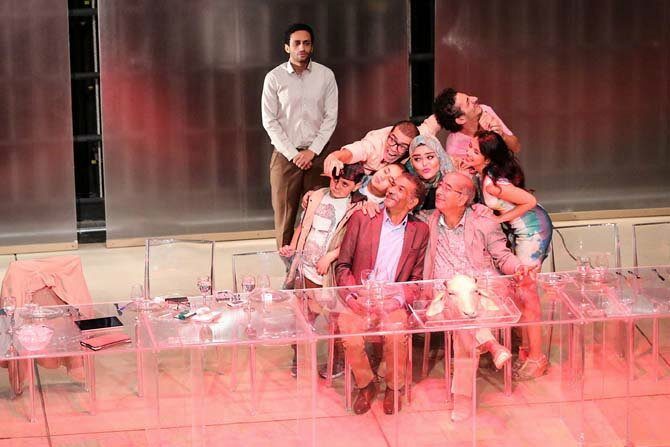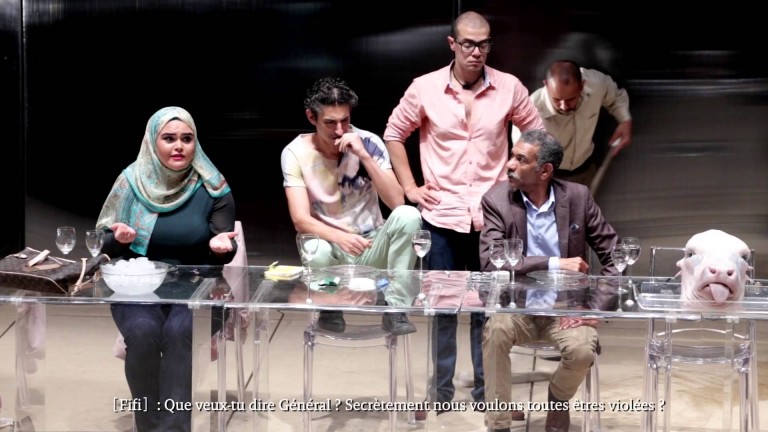The Last Supper, a play by Ahmed El-Attar, which magnifies the absurdity of modern upper-class society, is set to run for five consecutive days at Falaki Theatre from 22 till 26 September.
The play follows Attar’s often chosen themes of family ties and societal issues through which he demonstrates the superfluous and hollow nature of an Egyptian family, reflecting on the society’s absurdity and apathetic attitude as a whole. The setting is a dining table facing the audience, where an upper-class family sits for dinner to have a conversation.
In a review published in 2014 in Ahram Online, May Selim said “The director creates a space in which the audience remains in close proximity to the actors. The stage of the Falaki Theatre has been transformed into a rectangular box in which actors and spectators are isolated from the outside world. As such, the useless conversations of the caricatured characters start weighing heavily on the audience, who find in them resemblances to people in their own lives.”
The cast includes Boutros Boutros-Ghali, Ahmed Farag, Mona Farag, Mahmoud El Haddad, Mohamed Hatem, Ramsi Lehner, Nanda Mohammad, AbdelRahman Nasser, Sayed Ragab, Mona Soliman and Marwa Tharwat.
The Last Supper premiered in November 2014 at the Falaki Theatre in Cairo and soon after was performed at the Grand Plateau of La Friche Belle de Mai during the 9th Edition of the ‘Rencontres à l’échelle’ Festival – Marseille, France. The play also took part in the official selection of 2015 Festival d’Avignon (Avignon Festival), France. The play was staged in Cairo on several occasions.
Performances daily, 22-26 September, 8pm
Falaki Theatre, Falaki Street, American University Campus, Downtown, Cairo
This article was originally published on Ahram Online Arts and Culture Reposted with permission. Read the original article.
This post was written by the author in their personal capacity.The opinions expressed in this article are the author’s own and do not reflect the view of The Theatre Times, their staff or collaborators.
This post was written by Ahram Online.
The views expressed here belong to the author and do not necessarily reflect our views and opinions.



















